Meet our speakers and chairs for the Focus on Fibre & Food Monitoring symposium, 11-12 February 2019, Dunedin, New Zealand.
Visiting speakers and chairs
Emeritus Professor Robert Beaglehole, University of Auckland
 Topic: Welcome and opening remarks
Topic: Welcome and opening remarksRobert Beaglehole trained in medicine, cardiology, epidemiology and public health in New Zealand, England and the USA before becoming a public health physician. He was Professor of Community Health at the University of Auckland, New Zealand (1988-1999). In 2000 he joined the sta of the World Health Organization and was engaged in a variety of public health roles. Between 2004 and 2007
he directed the Department of Chronic Disease and Health Promotion. In 2007 he returned to New Zealand. He is now an independent global public health practitioner with a focus on the prevention and control of noncommunicable diseases (NCDs) in New Zealand, the Paci c and globally. He founded ASH in 1982 and now chairs the organisation which actively supports the Smokefree Aotearoa 2025 Goal. He is Professor Emeritus of the University of Auckland and chairs the Lancet NCD Action Group.
Dr Kathryn Bradbury, University of Auckland
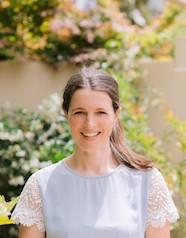 Topic: Population food choices – traditional and emerging methods to assess diet in prospective cohort studies
Topic: Population food choices – traditional and emerging methods to assess diet in prospective cohort studiesKathryn Bradbury was awarded a PhD in Human Nutrition from the University of Otago in 2012, for her project measuring blood folate status in adults from the participants of the 2008/09 New Zealand Adult Nutrition Survey. Following her PhD, Kathryn spent 5 years at the Cancer Epidemiology Unit, Nu eld Department of Population Health, University of Oxford, where she held the Girdlers' HRC fellowship. She worked with paper-based food frequency questionnaires to investigate relationships between diet and disease in large population studies – the European Prospective Investigation into Cancer and Nutrition (EPIC), and the Million Women Study. During her time in Oxford, Kathryn was also responsible for the Oxford WebQ – a web-based 24-hour dietary assessment tool used to collect dietary information from over 200,000 participants in UK Biobank. Kathryn has returned to New Zealand and has been awarded the Sir Charles Hercus HRC fellowship.
Emeritus Professor John H Cummings, University of Dundee
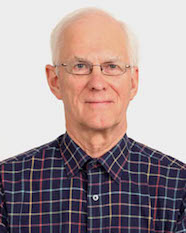 Topic: The origins of the dietary fibre hypothesis & Fibre and the physiology of the large bowel
Topic: The origins of the dietary fibre hypothesis & Fibre and the physiology of the large bowelChair: Focus on fibre workshop
John H Cummings is unquestionably one of the most distinguished gastroenterologists in the United Kingdom. His most important discovery was the anaerobic metabolism of carbohydrate in the large bowel, one of the major discoveries in this eld in the last century. He was Professor of experimental gastroenterology at the University of Dundee, has previously been head of the Gastroenterology group at the MRC Dunn Clinical Nutrition Centre in Cambridge, as well a consultant gastroenterologist at Addenbrooke's Hospital in Cambridge. He is an advisor to the World Health Organisation and has been a member and chair of innumerable relevant government advisory bodies in the United Kingdom.
Tracy Hambridge, Food Standards Australia New Zealand
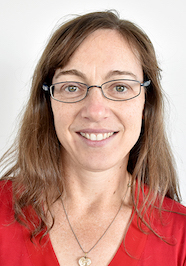 Topic: How do we know what Aussies eat and what's in it? Food and nutrition monitoring in Australia
Topic: How do we know what Aussies eat and what's in it? Food and nutrition monitoring in AustraliaTracy Hambridge holds a Bachelor of Applied Science in Nutrition from the University of Canberra, a Masters in Nutrition and Dietetics from Deakin University, Melbourne, and has worked at
Food Standards Australia New Zealand (FSANZ) for over 18 years. She currently holds the position of Principal Specialist – Dietary Exposure Assessment. Her primary role is conducting dietary exposure assessments for a range of food chemicals (e.g. food additives, contaminants, agricultural and veterinary chemicals and nutrients), including for food standards development and food analytical surveys. Tracy has a detailed knowledge of national dietary surveys, and has worked in the nutrition risk assessment and risk management areas of FSANZ, in addition to assisting with the implementation of a usual nutrient intake methodology at the Australian Bureau of Statistics, for the most recent Australian national nutrition survey. Tracy has participated as an invited expert on exposure assessment for the Joint FAO/WHO Expert Committee on Food Additives (JECFA).
Distinguished Professor Paul Moughan, Riddet Institute
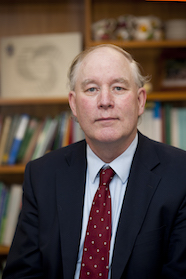 Chair: Focus on fibre session
Chair: Focus on fibre sessionPaul Moughan holds the position of Distinguished Professor at Massey University and Riddet Institute Fellow Laureate, having held the position of Foundation Co-Director of the Riddet Institute from 2003-2017. His research has encompassed the fields of human and animal nutrition, food chemistry, functional foods, mammalian growth biology and digestive physiology. In 1995 he was awarded Doctor of Science and in 1997 was awarded a Personal Chair at Massey University and elected a Fellow of the Royal Society of New Zealand. He is a Fellow of the Royal Society of Chemistry, Cambridge, England. In 2011 he was appointed Chair of the FAO Expert Consultation to review recommendations on the characterisation of dietary protein quality in humans, and in 2014 was appointed to the International Think Tank (World Science Academies) on world food security. He has received numerous prestigious international awards for his work, including the New Zealand Prime Minister's Science Prize in 2012.
Jenny Reid, Ministry of Primary Industries
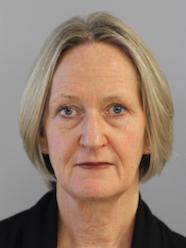 Chair: Focus on food monitoring session
Chair: Focus on food monitoring sessionJenny Reid (MDiet; MPH; MPA) manages a team at the Ministry for Primary Industries who are responsible for the development, maintenance and enhancement of market access across South East Asia. She ensures the necessary government to government technical relationships are developed and enhanced, and is accountable for negotiating and promulgating the export requirements (including certification) for New Zealand's exports of primary products and food to support market access. Jenny has worked for the New Zealand government in the area of food regulations and in international policy development, having previously managed all of the food safety scientists within MPI. She is very active in the area of international standard development where she leads the New Zealand delegation to both the Codex Committee on Nutrition and Foods for Special Dietary Uses (CCNFSDU) and the Codex Committee on Food Labelling (CCFL), where New Zealand is leading key work projects in both these committees.
Dr Lisa Te Morenga, Victoria University of Wellington
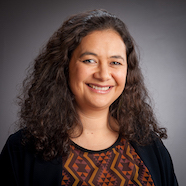 Topic: Fibre in the food we eat
Topic: Fibre in the food we eatLisa Te Morenga (Ngapuhi, Ngāti Whātua, Te Rarawa) is a Senior Lecturer in Māori Health and Nutrition in the School of Health at Victoria University of Wellington. She specialises in the role of diet in the treatment and prevention of obesity, diabetes and cardiovascular disease, with a particular interest in nutrition and hauora (Māori health). She completed a doctorate in human nutrition at the University of Otago in 2010. She was subsequently a Senior Research Fellow and Associate Dean Māori for the University of Otago Division of Sciences, and has received funding from the Health Research Council, the Riddet Institute Centre of Research Excellence, and Healthier Lives National Science Challenge. Dr Te Morenga combines her research with community and international outreach, and has worked with organisations including the World Health Organisation, Toi Tangata, Ngāti Porou Hauora, the National Health Foundation, and the Royal Society Te Apārangi.
Dr Sally Mackay, University of Auckland
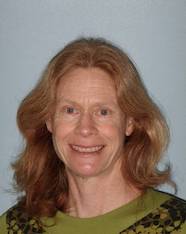 Chair: Focus on food monitoring workshop
Chair: Focus on food monitoring workshopSally Mackay is a Registered Nutritionist who recently completed a PhD at the University of Auckland on the INFORMAS (International Network for Food and Obesity/non-communicable diseases, Research, Monitoring and Action Support) methodology of monitoring food prices over time. She is working as a research fellow monitoring the healthiness of the packaged food supply and is interested in reformulation of packaged foods, food a ordability, monitoring food companies commitments to health and monitoring the wider food environment. She worked with the New Zealand INFORMAS team on assessing Government's level of implementation of policies for improving food environments, and a report of a comprehensive assessment of food environments. Her previous work as a public health nutritionist for a wide range of organisations included working for the Ministry of Health for the 2008/09 Adult Nutrition Survey.
Invited speakers and chairs
Emeritus Professor Rosalind Gibson, University of Otago
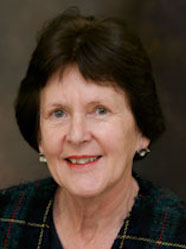 Topic: Use of biomarkers to assess the nutritional status of populations: challenges and possible solutions
Topic: Use of biomarkers to assess the nutritional status of populations: challenges and possible solutionsRosalind Gibson is an Emeritus professor in the Department of Human Nutrition, University of Otago. She has an MS PH (Nutrition) from the School of Public Health, University of California, Los Angeles, USA and a PhD in Nutrition from the University of London, UK. She has had a life-long interest in international nutrition, initially working in the Ethio-Swedish Children's Nutrition Unit in Ethiopia for three years, and subsequently in collaborative research studies on micronutrients in Papua New Guinea, Guatemala, Ghana, Malawi, Zambia, and Ethiopia as well as Thailand, Mongolia and more recently Cambodia, NE Brazil, and Indonesia. Professor Gibson is a member of the International Zinc Nutrition Collaborative Group (IZiNCG), a fellow of the American Society of Nutrition, and a fellow of the Royal Society of New Zealand. She has served on several expert committees for WHO, FAO, WFP, UNICEF, and the US National Academies of Sciences.
Associate Professor Lisa Houghton, University of Otago
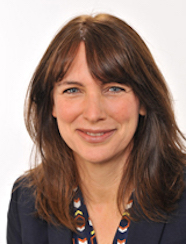 Chair: Focus on food monitoring session
Chair: Focus on food monitoring sessionAssociate Professor Lisa Houghton is the Head of Department of Human Nutrition, University of Otago and Director of the World Health Organisation Collaborating Centre for Human Nutrition in the Western Pacific Region. She completed her undergraduate and MSc training at the University of Guelph, Canada, her dietetic training at McMaster Health Sciences, and her PhD at the University of Toronto. Lisa's research is focused on the assessment and health consequences of micronutrient deficiencies in at risk population groups, with particular expertise in maternal and young child undernutrition.
Professor Jim Mann, University of Otago
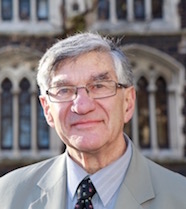 Topic: Carbohydrates: heroes or villains in diabetes management?
Topic: Carbohydrates: heroes or villains in diabetes management?Jim Mann has been Professor in Medicine and Human Nutrition at the University of Otago and Consultant Physician (Endocrinology) in Dunedin Hospital for the past 30 years. Previously he lectured at the University of Oxford and was a Physician in the Radcliffe Infirmary. He is Director of the World Health Organisation (WHO) Collaborating Centre for Human Nutrition, the 'Healthier Lives' National Science Challenge and the New Zealand-China Non Communicable Diseases Research Collaboration Centre and; co-Director of the Edgar Diabetes and Obesity Research Centre (EDOR). He is principal investigator for the Riddet Institute, a national Centre of Research Excellence at Massey University. He is a Fellow of the Royal Society of New Zealand and has been awarded the Hercus Medal of the Royal Society and the University of Otago Distinguished Research Medal. He was appointed a Companion of New Zealand Order of Merit for services to Medicine and medical research.
Dr Rachael McLean, University of Otago
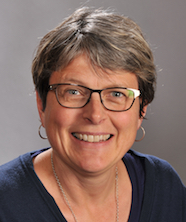 Topic: Measuring population sodium intake: a WHO priority but how should we do it?
Topic: Measuring population sodium intake: a WHO priority but how should we do it?Rachael McLean is a Public Health Physician and Senior Lecturer in Public Health and Epidemiology in the Department of Preventive & Social Medicine, University of Otago. She has a particular research interest in assessment of sodium intake in individuals and populations, as well as policy and strategies for dietary sodium reduction. She is an active member of several international research collaborations including the Science of Salt and the TRUE Consortium; a consortium of health and scientific organizations formed to set minimum standards for the conduct of clinical and epidemiological research on dietary sodium. She has acted as an adviser to the World Health Organization, and is currently on the Expert Working Group for Sodium, a Trans-Tasman appointed panel advising the Australian and New Zealand governments on Nutrient Reference Values.
Honorary Associate Professor Winsome Parnell, University of Otago
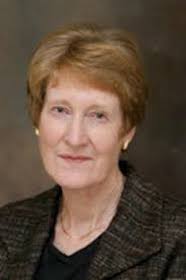 Topic: Dietary Surveys in New Zealand: history and scope
Topic: Dietary Surveys in New Zealand: history and scopeWinsome Parnell's academic career spans more than 45 years, and has included major research interests in children's nutrition issues, both in NZ and in the Pacific region. Throughout her career she has been involved in Nutrition Surveys of NZ, and she initiated the New Zealand Food Composition Database in conjunction with the Government agency DSIR (now held by Plant and Food research). She has contributed to National Nutrition Surveys, with a particular interest in the evolving 24 diet recall methodology, and latterly in the development of an index to measure Household Food Insecurity in New Zealand. Winsome's National Nutrition Survey roles have also included analysis of the LINZ 89 survey data, membership of Ministry of Health Technical Advisory Committees and lead roles in the University of Otago provider teams for these national surveys for quality control of dietary data collection, data analysis, and writing of survey reports in collaboration with the Ministry of Health.
Dr Andrew Reynolds, University of Otago
 Topic: Fibre to maintain health
Topic: Fibre to maintain healthAndrew Reynolds is a postdoctoral fellow with the Department of Medicine at the University of Otago. He has a BSc from La Trobe University, a European MSc, a PhD from the University of Otago, and is currently working towards an MPH. Andrew works with two international guideline development groups and is a board member of the Otago Southland Diabetes Research Trust. He works with randomised trials and systematic reviews pertaining to carbohydrate intake and human health.
Professor Michael Schultz, University of Otago
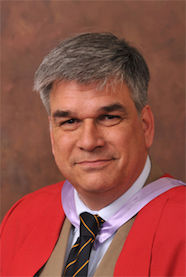 Topic: Fibre and the gut microbiome
Topic: Fibre and the gut microbiomeMichael Schultz studied in Erlangen-Nuremberg, Germany and trained in Manchester, London and Regensburg, Germany. He went to Chapel Hill, NC at the University of North Carolina for his postdoctoral fellowship to research the e ect of probiotics in In ammatory Bowel Disease under the mentorship of Professor Balfour Sartor. He joined the Department of Medicine at the University of Otago in 2005 taking up a joint clinical position as a Senior Lecturer, and Gastroenterologist with the Southern District Health Board. He was appointed Head of the Department of Medicine in 2016 and was President of the New Zealand Society of Gastroenterology from 2016 to 2018. He is also the director of the GutHealthNetwork and Medical Advisor to Crohn's and Colitis NZ. He was promoted to Professor in 2019. His research expertise is focused on clinical and basic scienti c aspects of In ammatory Bowel Diseases with an emphasis on host-microbe interactions. He has several years of experience working with animal models of experimental colitis and the administration of clinical trials in patients with IBD. On a clinical basis, Michael is interested in health care delivery, especially using dHealth technology and other gastrointestinal disorders including non-alcoholic fatty liver disease, Irritable Bowel Syndrome and Coeliac Disease.
Dr Claire Smith, University of Otago
 Topic: Dish it up: highlights of research using NZ National Nutrition Survey data
Topic: Dish it up: highlights of research using NZ National Nutrition Survey dataClaire Smith works as a Research Fellow in the Department of Women's and Children's Health, Dunedin School of Medicine, University of Otago. She is currently researching behavioural factors associated with poor sleep in adolescents. As part of this she is using automated wearable cameras and is interested in practical methods of integrating new technology into traditional dietary assessment techniques. Claire has a long background working with national nutrition survey data, and for her Masters she examined dietary supplement use using the 1997 data set. Claire was employed as part of the Children's Nutrition Survey 2002 team, and post PhD she analysed and wrote papers on the 2008/09 Adult Nutrition Survey.
